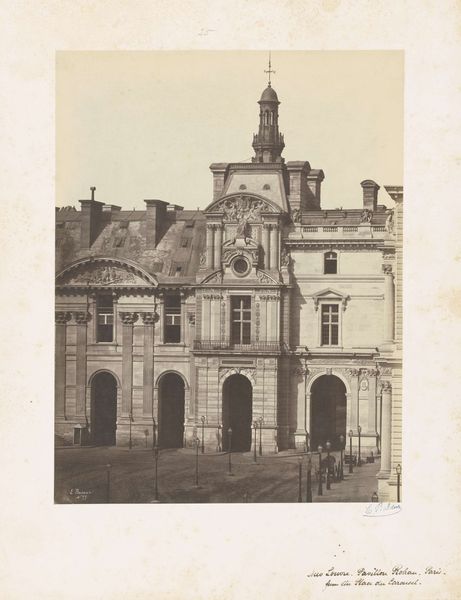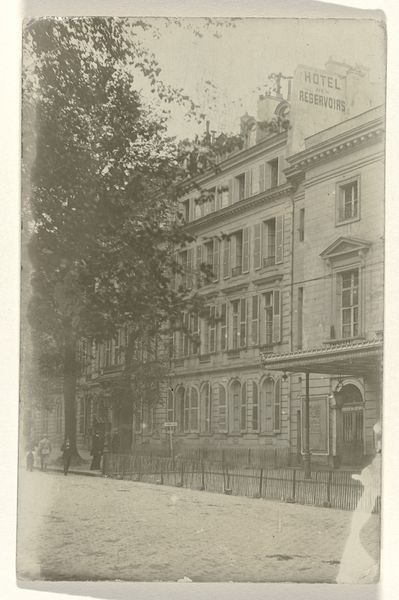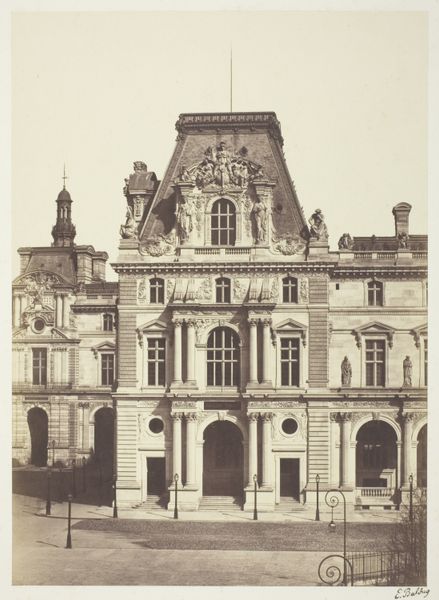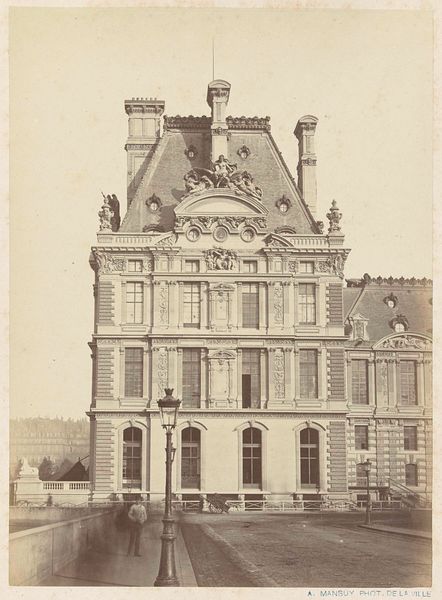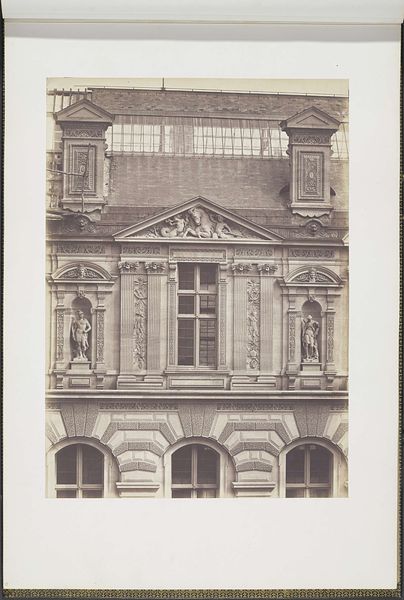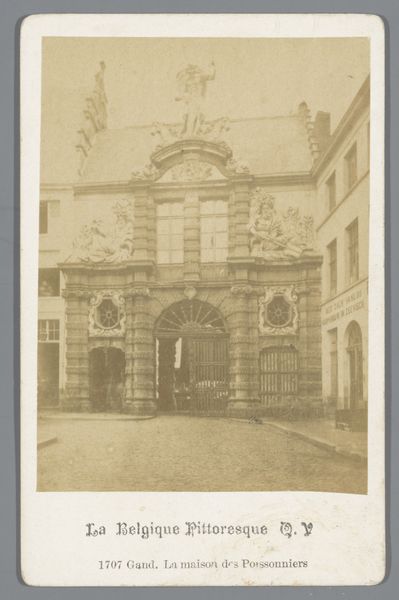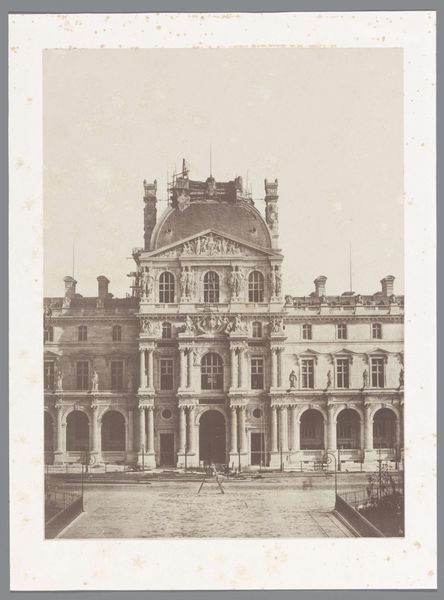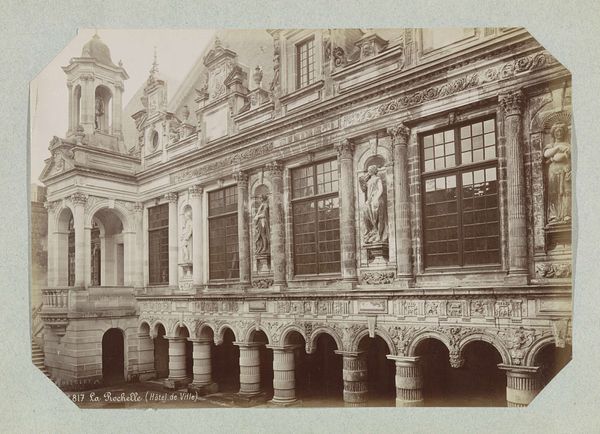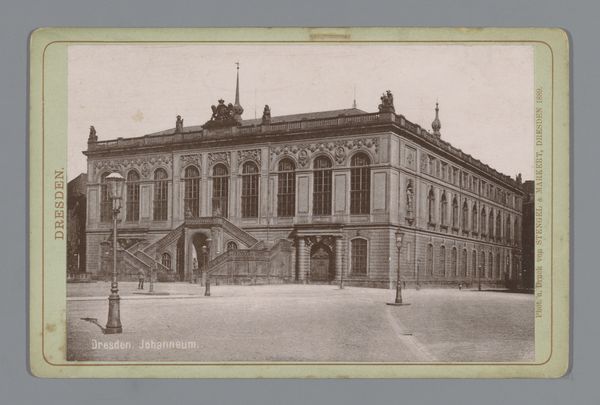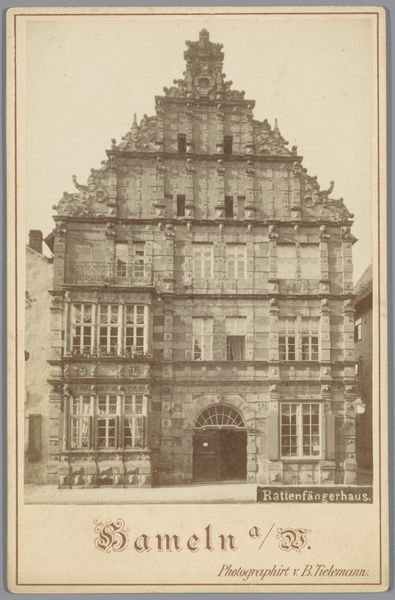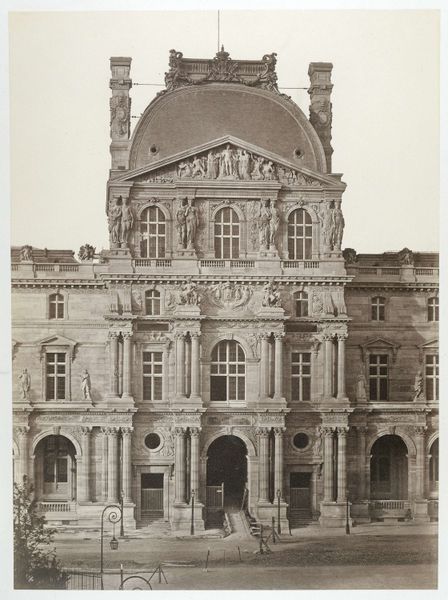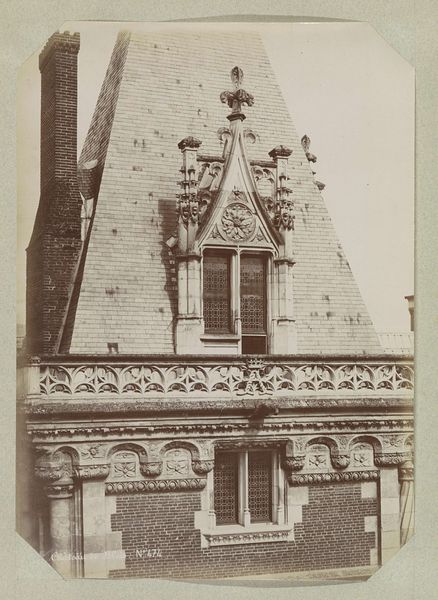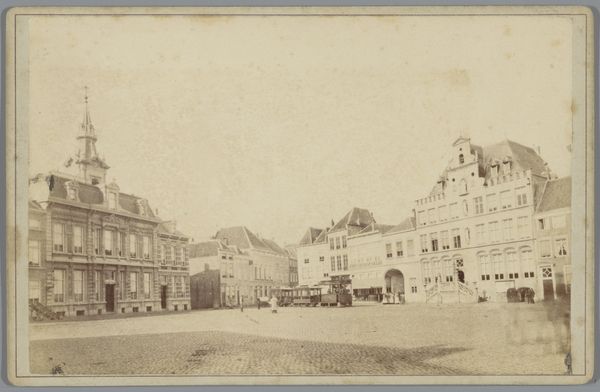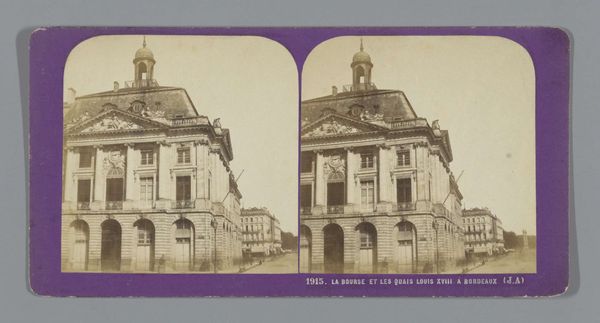
photography
#
landscape
#
archive photography
#
historic architecture
#
photography
#
historical photography
#
19th century
#
cityscape
Dimensions: height 347 mm, width 252 mm
Copyright: Rijks Museum: Open Domain
Editor: This photograph, taken by Médéric Mieusement sometime between 1880 and 1900, captures the entrance facade of the Château de Blois. The monochromatic palette lends it a certain gravitas. How do you interpret the photograph within its historical context? Curator: Well, understanding 19th-century photography, especially architectural photography like this, requires thinking about its role in shaping perceptions of heritage. Before mass tourism, photographs like this were primary ways people experienced historical sites. Think about it - what did it mean for Mieusement to choose this specific viewpoint and to focus on the architectural details of Blois? Editor: So, this wasn't just about documenting a building. It was about creating a certain narrative around it? Curator: Precisely! Mieusement was part of a movement using photography to record and, in a sense, legitimize French national identity through its architectural landmarks. Notice the formality of the composition, almost like a portrait. It’s not simply a record; it's an idealized representation, aimed to inspire reverence. Do you think it romanticizes the past? Editor: Perhaps it does, yeah, it certainly has an epic quality to it. By showcasing this grand facade, it somewhat masks the more complex socio-political realities of the time. Photography's early power to selectively shape reality is evident here, almost glorifying Blois and erasing any discordance with its visual grandeur. I hadn’t quite thought of that. Curator: And that is how an understanding of context and politics informs art and art history! Thinking about why and for whom this photograph was created gives us crucial insights into its enduring significance. Editor: Right! Thank you for contextualizing it that way, it shifts the meaning a lot. I’ll consider that when approaching similar architectural images in the future.
Comments
No comments
Be the first to comment and join the conversation on the ultimate creative platform.
